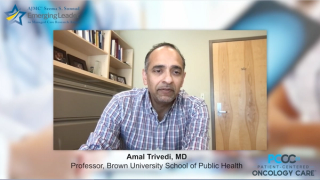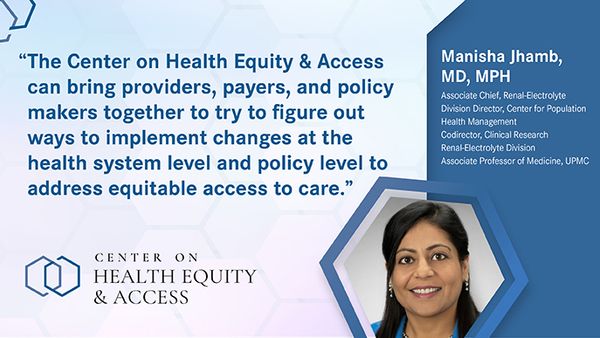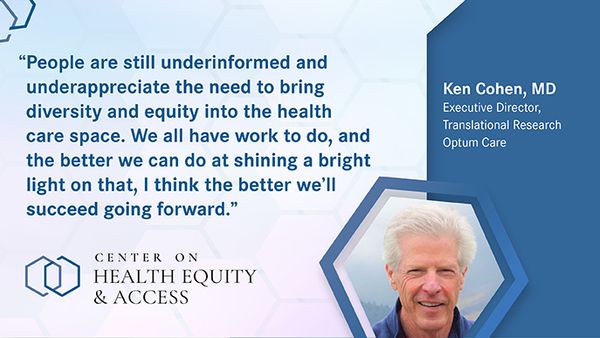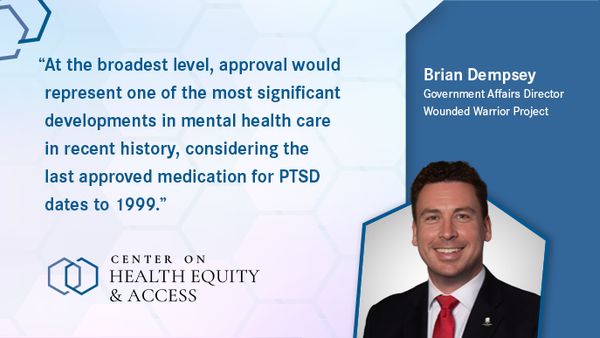
Center on Health Equity & Access
Latest News

Latest Videos

CME Content
More News

PfizerForAll aims to help improve health care by offering telehealth services, prescription services, vaccination scheduling, and savings programs.

The closures highlight financial challenges that rural hospitals face amid workforce shortages, rising costs, and leveling reimbursement.

Aetna has become the first major US insurer to expand access to fertility services by covering intrauterine insemination as a medical benefit for all eligible plans, marking a significant move toward greater equity in family-building options for people of all backgrounds.

Social vulnerability and economic disadvantages exacerbate financial hardship in cancer survivors, according to one study.

Medicare has not clearly defined what constitutes "established cardiovascular disease," leading to variability in potential patient eligibility; therefore, researchers aimed to estimate the number of Medicare beneficiaries who would become newly eligible for semaglutide under different definitions.

Brooke Kempf, PMHNP, from Indiana University Indianapolis, discusses the importance of timely outpatient care and how innovative approaches like long-acting injectables (LAIs) are helping to bridge the gap in treatment for schizophrenia.

Learn more about the negotiated Medicare drug prices and what the FDA's rejection of therapeutic MDMA means for mental health care through expert reactions. Other highlights include pharmacy-based HIV care, gaps in care for gastrointestinal stromal tumors, and the obesity epidemic.

Disparities in hypertension brought on by neighborhood deprivation were most prominently found in Black patients.

These study authors hope their findings will inform future research on gastrointestinal stromal tumors (GIST) and close care gaps for minority patient populations.

The growing utilization of long-acting injectable (LAI) medications for treating patients with schizophrenia indicates a positive trend in mental health practice, according to Brooke Kempf, PMHNP, Indiana University Indianapolis.

On this episode of Managed Care Cast, we're talking with the author of a study published in the August 2024 issue of The American Journal of Managed Care® that reviews the US obesity epidemic and discusses inadequate obesity management insurance coverage.

The FDA's decision to reject midomafetamine (MDMA) capsules in combination with assisted psychotherapy (MDMA-AT) for adults with PTSD reignited the controversial conversation around investigative psychedelic therapy.

At AIDS 2024 in July, Kelly Dyer, MD, Perelman School of Medicine, presented research findings from an investigation at the intersection of health equity, substance use detox, infectious disease screening, and patient harm reduction.

Adverse outcomes in the aftermath of the COVID-19 pandemic continue to be evaluated as they pertain to social determinants of health, with these authors investigating improvements in food hardship among families participating in the Supplemental Nutrition Assistance Program (SNAP).

Some groups praised CMS after it announced the 10 negotiated Medicare drug prices while others criticized its potential impacts on drug competition and development.

Jennifer Cocohoba, PharmD, MAS, AAHIVP, University of California, San Francisco, School of Pharmacy, discusses the benefits of pharmacy-administered long-acting injectable antiretroviral therapy for HIV and patient attitudes toward pharmacy-administered treatment.

Along with the company reorganization, Lykos announced it will be reducing its workforce by approximately 75%, with the remaining team focused on continuing efforts in clinical development, medical affairs, and engagement with the FDA.

The proportion of allergists accepting Medicaid in the US varied significantly among and within states.

While the evidence demonstrating the poor state of American women's health is not new, the nation's trends of maternal fatality may reflect broader failures in the approach to women's health care.

Patients who have comorbid relapsed/refractory multiple myeloma (RRMM) and advanced chronic kidney disease (CKD) are often excluded from clinical trials, leaving treatment gaps for these high-risk patients.

Health insurance premiums for 2025 are expected to rise slightly due to higher prescription drug costs and inflation, according to a new analysis from the American Academy of Actuaries.

Andrew Hantel, MD, Dana-Farber Cancer Institute, discusses factors contributing to disparities in oncology clinical trial enrollment.

A trio of posters presented at AIDS 2024, the 25th International AIDS Conference, explored widespread disparities in access to pre-exposure prophylaxis (PrEP) and how to make access more equitable, both globally and locally.

While many states cover routine eye exams, about 6.5 million adults lack comprehensive exam coverage, and around 14.6 million have no access to glasses.

While resources and strategies to combat social determinants of health do exist, effectively leveraging them requires a coordinated approach involving supportive policies, technical assistance, community governance, and sustainable financing.



















